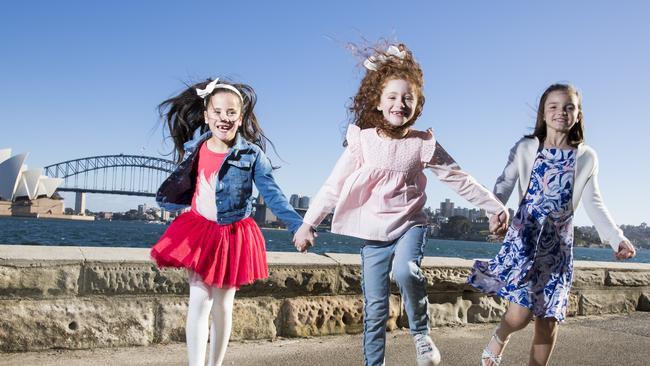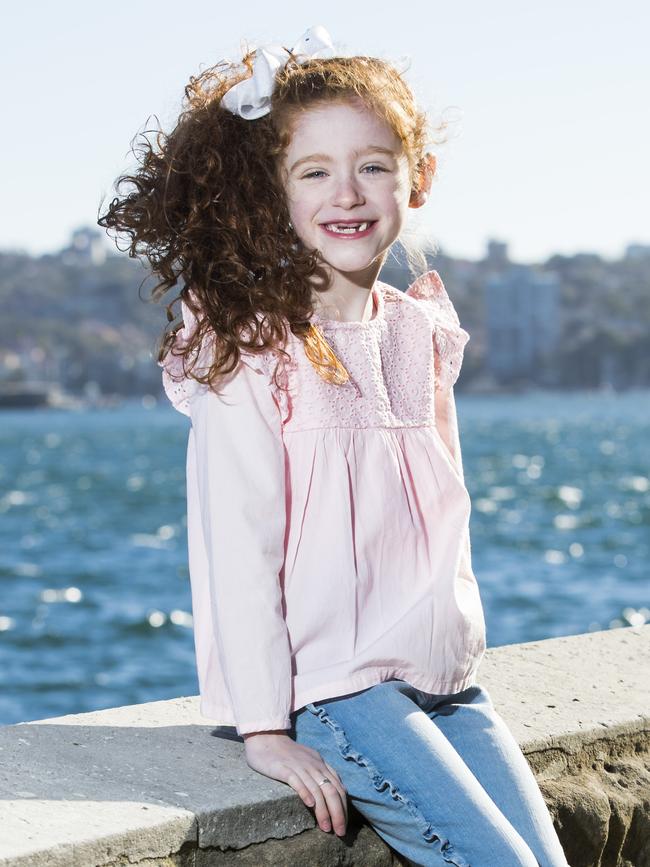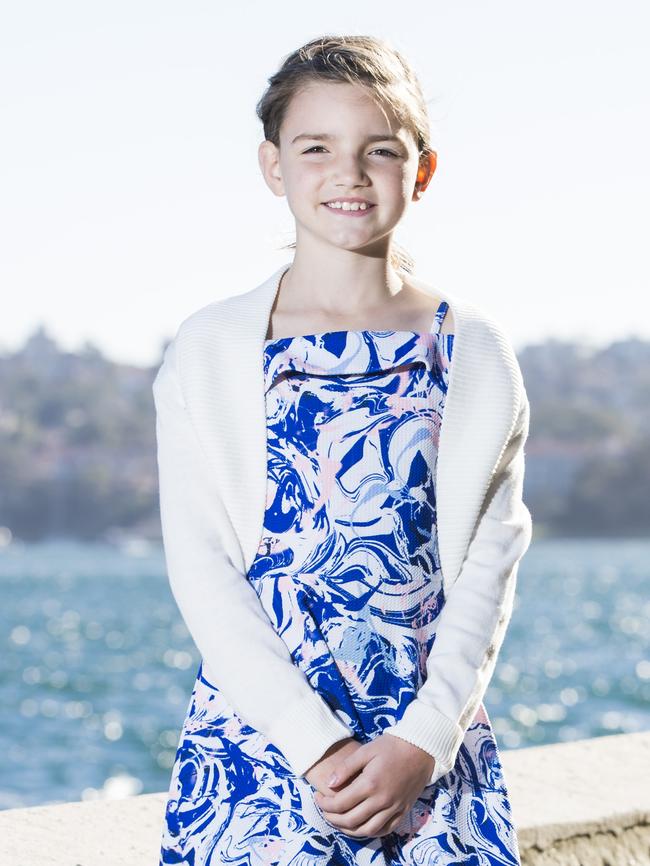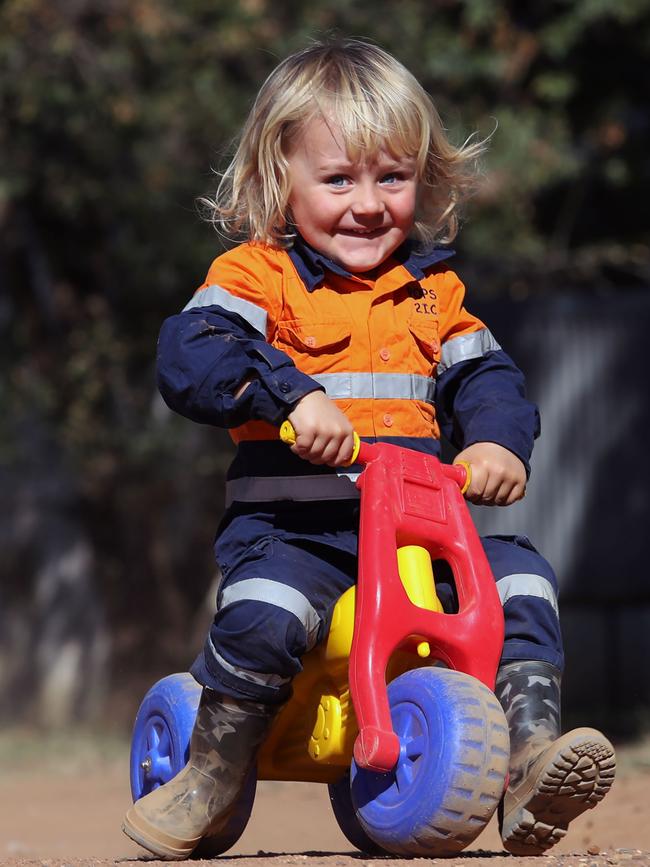Rural and regional kids battle for the opportunities city cousins enjoy
Meet these three young girls, all named Scarlett and all about the same age. But for all the similarities these girls live vastly different lives and enjoy vastly different opportunites because of the city v bush divide.
- Bush Summit 2019: Mining gives farm families second income
- Daily Telegraph to host Bush Summit 2019 in Dubbo
There’s no good reason why these three bright young girls growing up in the best state in the best nation on earth shouldn’t each have the world at their feet.
But while the trio are all about the same age and share a name — Scarlett — and a happy family life, they drew different tickets in the postcode lottery that can have a big impact on a kid’s future.
The fact is that children raised in the city enjoy important opportunities and advantages over many living in regional and rural Australia.
From inequality in education, fewer and lower-paid jobs and a lack of community facilities, bush kids often find themselves at a disadvantage. Though just as bright as their city cousins, many are forced to move to chase their dreams and fulfil their potential.

MORE NEWS
Teen boys and girl, 10, drive 4WD from Qld to NSW
Nicole Kidman takes family to Sunday mass in Sydney
Large earthquakes hit Indonesia and Western Australia
These issues will be in the spotlight, along with drought relief and other community-building initiatives, at The Daily Telegraph’s Bush Summit, which will be held in Dubbo on Thursday.
Prime Minister Scott Morrison, Deputy PM Michael McCormack and Labor leader Anthony Albanese will attend the high-powered event exploring everything from water security, farming practices and mining to social issues, tourism and healthcare.
The parents of seven-year-old Scarlett Southon, 7, from Trundle in NSW’s Central West, are worried there are not enough local opportunities to help her achieve her dream of becoming a veterinarian.

They also travel more than 280km each week so she can attend dance lessons.
“This current drought has only increased and highlighted the systemic problems causing the totally unacceptable situation of a difference in opportunity for Australian children,” said her father John Southon, who is also principal of the town’s local school.
“Opportunity in a wealthy country should not be determined by geography,” he said.
In Trundle, many families are just scraping by.
Census data from 2016 shows the average weekly household income was $911 — well below the NSW average of $1486.
More than a third — 35.5 per cent — earned less than $650.
Of couples with kids, only 16 per cent of parents were both employed and worked full-time, while a quarter had both partners not working.
There was also limited internet access, which can be problematic for schoolchildren, with only 66 per cent of households able to get online.

The NSW average for household internet access is 82.5 per cent.
There are similar issues in Shellharbour on the state’s South Coast, which is home to Scarlett Grima, 7, who wants to be “an artist who paints”.
There, 30.4 per cent of couples with children were both unemployed in 2016 and the weekly household income was below average at $1395.
But in the sunny beachside suburb of Maroubra, in Sydney’s east, where Scarlett McCarthy, 8, lives, the average weekly income was $1722 and an astonishing 25.7 per cent of households brought home more than $3000.
This is partly because mums and dad were more likely to both work full-time, contributing more money to the weekly pool.
In Maroubra, 83.4 per cent of households can access the internet, while in Shellharbour that figure was 80.2 per cent.
Scarlett McCarthy dreams of being an artist and has opportunities to pursue it.

“She loves school because she learns lots, and especially loves doing art and drama classes,” said her mother Kylie, who owns a hairdressing salon and a building company with her husband.
While a rural existence is often seen as healthier, city-dwelling children are more likely to live longer.
However, rural and regional kids aged 12-17 are more active.
Mr McCormack acknowledged country kids “aren’t always getting the same opportunities as those in our cities, especially during this crippling drought”.
“It is so important that we bridge this divide,” he said.
Mr Albanese said kids deserved “the same opportunities to reach their potential, regardless of their postcode”.
NSW Secondary Principals’ Council president Chris Presland said children in rural and remote areas were “certainly struggling in terms of academic performance relative to city kids”. Primary Principals’ Association president Phil Seymour said a new “rural director of education” would help ensure best practice in country schools.
DROUGHT BREAKING OUR YOUTH
Children in drought-stricken areas are growing up too fast, taking on extra responsibilities and fear the future.
Feeding starving stock by hand, shooting sheep before and after school and worrying about finances and the mental health of parents are just some of the issues for bush kids.

Five months after UNICEF unveiled these troubling themes in a drought report, the charity is preparing to host a youth summit later this year.
UNICEF head of government relations Oliver White — who wrote the report — said UNICEF will partner with the NSW government to host the summit in October.
“Its an opportunity for the children to build their strength, resilience and leadership skills … there will also be activities to help them process what they are going through but also to get away from sometimes difficult circumstances (at home),” Mr White said.
The report exposed children as young as five years old feeling isolated both geographically and socially.
Darcy Josephs, 2, from Dubbo goes out to feed the sheep with his grandpa daily.
His father Jake Josephs said he was still too young to grasp the drought’s impact.
“There needs to be more awareness about the toll the drought has,” he said.
— Edward Boyd


